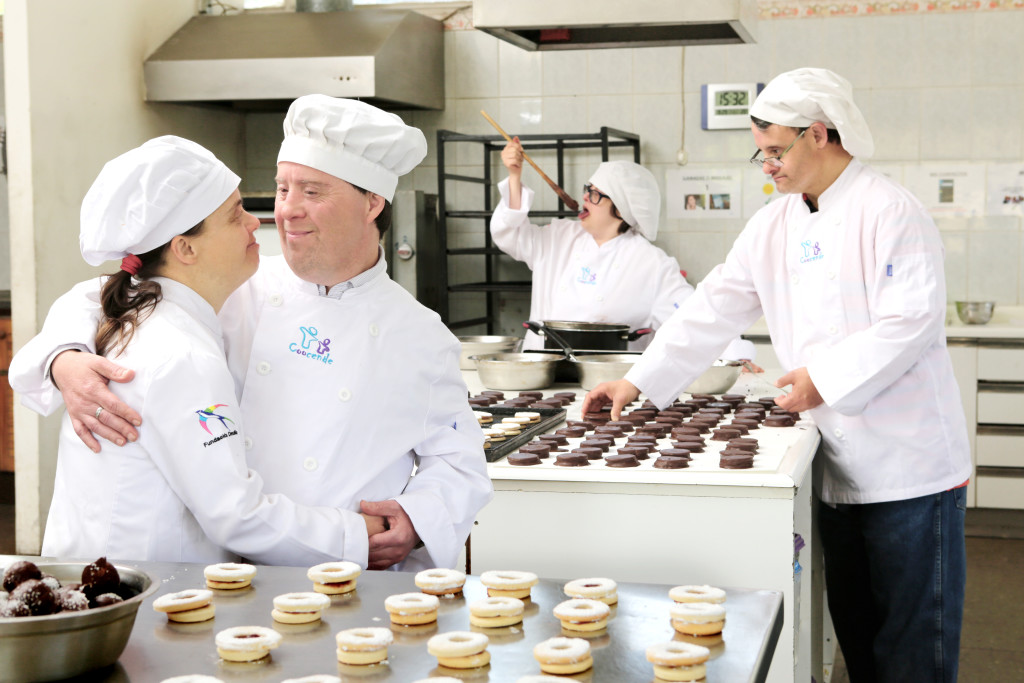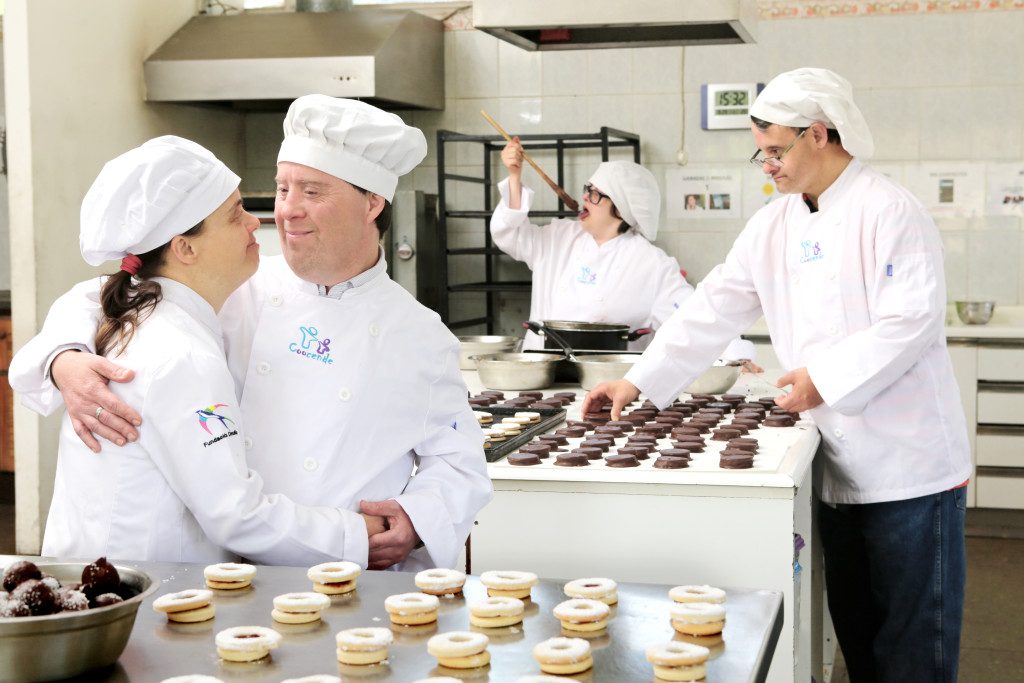“The most important thing is that you guys are responsible for your own lives.” The line comes early in Maite Alberdi’s documentary Los niños (The Grown-Ups). It is directed at a group of students at a Chilean school for people with Down Syndrome. But Ana, Ricardo, Andrés, and Rita aren’t children. Now in their forties, they all still attend the school though now they work in the kitchen as part of the catering department. They spend their days baking treats and sweets.
They also attend a class for “Conscious Adults” where they’re learning what it will take for them to live fully independent lives. That is the dream for many of those attending Coocende. Alberdi’s documentary merely follows the day-to-day routine at the school where her subjects grapple with what it might mean to have greater autonomy over their lives. It’s a sweet and dignified look at a population we not only tend to think often as mere children but one we continue to infantilize even when they’re grown up enough to handle kitchen equipment, have a drink at the bar, and be involved in long-term relationships.
Los niños is an eye-opening film that is most endearing when it just puts the camera on its subjects and allows them to be the protagonists of their own stories. It helps that most of those around them, including the staff at Coocende and even their own family members remain blurred by Alberdi’s camera. We’ve singled out 5 moments that show how this sweet doc is broadening audiences’ idea of what it means to live with Down syndrome.
Los niños screened as part of the 2017 Miami International Film Festival where it won the Zeno Mountain Award. Read the rest of our coverage of the fest here.
UPDATE 5/18/17: The Grown Ups screens Monday, June 12 and Wednesday, June 14 in New York as part of the Human Rights Watch Film Festival.
1
"Because you're stupid. You're stupid."
Ricardo punches in a couple of hours a week at an old person’s home and dreams of one day having enough money to live on his own. He knows the meager earnings at the catering gig at Coocende are more of a formality than anything else, a way for the students to learn about home economics, and hopes the extra cash he makes there helps him towards that goal. There’s something touching about seeing Ricardo help out the aging members of the home with the childish puzzles they struggle with. He enjoys being caretaker, a role he so rarely gets to take on. He’s caring and patient. It’s what makes his visit to his own grandmother, who flat-out calls him stupid when he tries to help her, feel all the more heartbreaking.
2
“What scares me the most is that life is so short and complex.”
A death in the family of one of the students at Coocende spurs a rather touching conversation about grief. As she worries that her father didn’t tell her whether he was going to heaven, her boyfriend comforts her by sharing his own vision of what happens when those near you depart. “They’re with me. I’m not alone. Death is not real. What’s real is what’s in your heart. You won’t be alone. Death goes to your heart.” It’s both a simple but complicated way of understanding loss.
3
“We can open people’s minds and they can see us having a normal life together.”
Throughout the film we see Ana and Andrés’ relationship grow. They daydream about what joyous life they’d have if they could move in together. More importantly, they are set on getting married which leads Andrés to try and buy a ring for her (he doesn’t have enough money, sadly) and even talk to a priest about the possibility of having a religious ceremony. They’re up against horrible odds, though, since by law they’re not allowed to wed. If only people could see them having a normal life, he sweetly says to her, then they’d be able to open people’s minds.
4
“Don’t kiss him wildly like an animal. Try being tender with him.”
While Ana and Andrés’ relationship is tender and loving—with only mild allusions to sex, Rita’s relationship is decidedly raunchier. Putting a spotlight on the way adult sexual urges reside in the middle-aged students at Coocende, Alberdi gives us plenty of scenes of Rita’s attempts at french kissing her mostly indifferent boyfriend. That they’re juxtaposed with Rita’s childlike wonder during her own birthday party (she’s ecstatic she got a doll and can at candy without worry) makes these overly sexual moments feel all the more illuminating.
5
“My sister-in-law met my brother and then they were happy. Why can’t I?"
At the core of Alberdi’s documentary is a empathetic portrait of adults who want to stop being treated like children. That’s most obvious in the few interactions we see they have with their own parents—like when Ana tearfully confronts her mother about her decision to prevent her relationship with Andrés from going forward. In her tears you can see the most eloquent vision of what goes through these students’ minds when they find the limits that are imposed, they’re told, for their own good.




